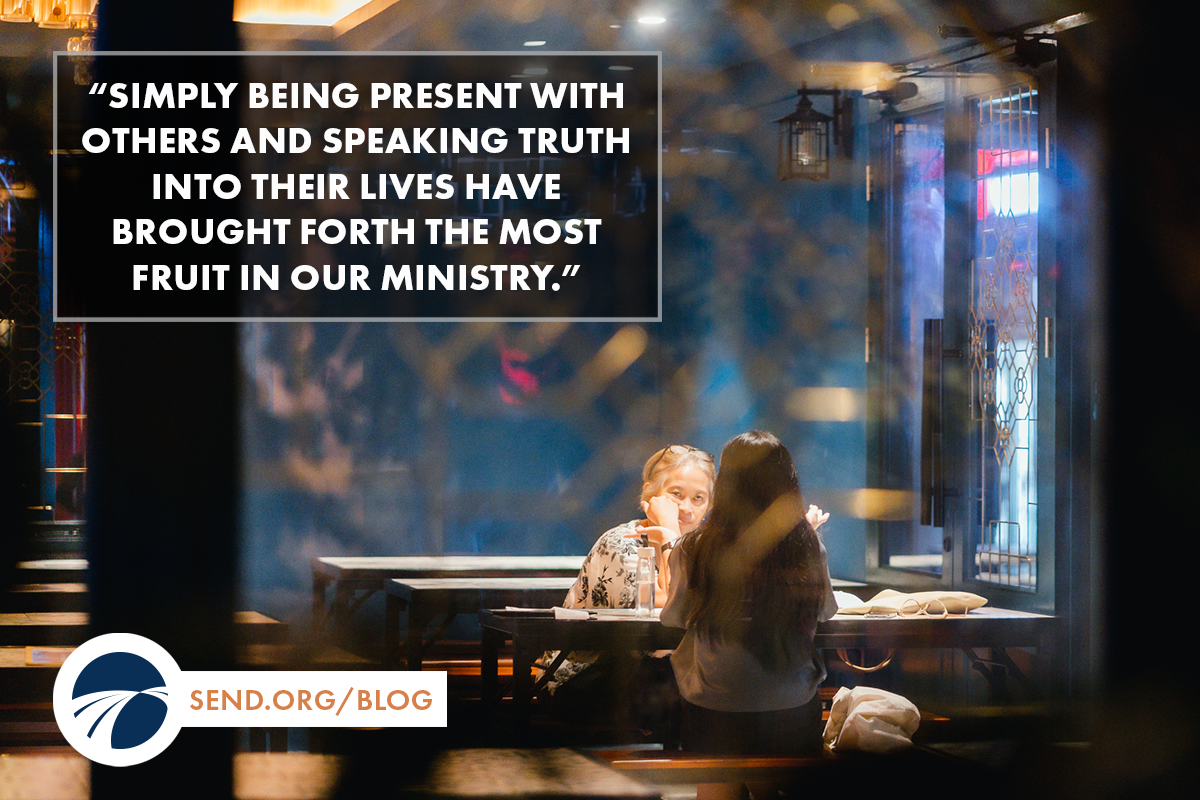
Explore News: What is your day-to-day life on the field actually like?
People often have misconceptions about missionary life (for example, that missionaries are spiritual giants evangelizing 100% of the time and seeing many people come to Christ quickly). In actuality, our missionaries are ordinary Christians seeking to be faithful followers of Jesus as they minister to those around them.
This month, we asked our missionaries: "What is your day-to-day life on the field actually like?"
_______________________________________________________

It Ebbs and Flows
"One thing about day-to-day life in this work is that there is constant change. Early on, there was a bit more of a set routine as I spent time in language study, but at the same time, that season was filled with discovering and learning new things about language, culture, and what stores had things for our new living situation. At this point in my career, I spend many days meeting people both in person and virtually, responding to messages and emails, and going through times of extreme busyness followed by small lulls (though the lulls seem less often). In our context, I have also moved into having a part-time local presence working at an international school, which is something I never imagined when I first went to the field. I continue to dream of seeing many people come to Christ and look for opportunities to share. But, the reality is that in difficult places, it often takes time to disciple people toward Christ and help them to grow. There is a lot of coming to the end of yourself and waiting for God to do the work that only he can do."
_______________________________________________________

Embrace An Open Agenda
"It's a challenge to describe a day in the life of a missionary because most days look different from week to week! Part of that is because of the job, and part of that is the culture I live in, which doesn't always stick to a schedule. But I will try nonetheless. I usually spend 1-2 days a week on various administrative tasks, like emails, documentation for our team's NGO, partner correspondence, etc. The other days of the week, I am engaged with our work in a student center at a university, meeting with students over coffee, interacting with teammates, and planning for upcoming events. As a nurse, I occasionally spend a large part of a week helping someone through a health crisis. However, it's not part of the weekly routine. Honestly, many of the most exciting parts of this work happen when there is no agenda. During the moments when you are simply walking through life with people, drinking morning coffee with your neighbors, and having the deep conversations that life brings about. These are the moments that are filled with opportunities for spiritual conversations and moments to be the presence of Jesus in the lives of others."
_______________________________________________________
_______________________________________________________

Go With The Flow, But Make Sure Your Own Needs Are Met
"This is one of the hardest questions to answer because I don't know if I have a 'typical' day. I have learned to always prioritize spending time alone with God when I wake up because I really do get my strength from him and must depend on him. Then, the rest of the day depends a lot on what I am working on during that season. Sometimes, it means going to my teammate's home and working with them on planning the national youth missions event, Misión Posible. Other times, it consists of meetings on TEAMS for my role on a leadership team in my field or planning a SEND Europe missions trip for the summer. I meet with young people several times a week to drink coffee or eat a meal and talk about life. Most weekends, I travel around the country to participate in youth camps or gatherings. For those, I could be speaking, leading the devotionals, or giving a workshop, so the work ahead of time depends on what is needed. Wednesday evening is a regular time on my calendar when I have my home group with my friends, and that is part of my own community time and helps fill my cup.
But I also love to have fun and enjoy living in the city! This year, my friend and I have a goal to see a musical every month by purchasing cheap tickets. When I need alone time, one of my favorite things to do is go to the movie theater, bring my snacks, and see a movie alone. Typically, I am in the city center once a week, walking around with my friends, grabbing a meal, and going to a local music jam session. I am also very active and take several workout classes throughout the week."
_______________________________________________________

Work and Play Can Intermingle
"Missionary work is a whole bunch of different things. Work can look like play, and play sometimes feels like work. It's hard to know which is which sometimes. Meeting non-Christian friends is fun and is not work for them, but trying to share the gospel with them is my work, so it kind of is for me. The day-to-day routine is hard to explain because few days are the same. I work to prepare for programs and events during the day and then execute the events in the evenings and weekends or off seasons (like summer or Christmas holidays) when students are out of school and people are off work. But I also leave time open to meet people and be available for the people I'm trying to reach. So my work goes by seasons rather than days or weeks."
_______________________________________________________
• Find out how you can become a SEND missionary.
• Explore where and how you can serve with SEND.
• Subscribe to Explore News , to hear real-life stories from our missionary panelists every month.
Additional Posts





